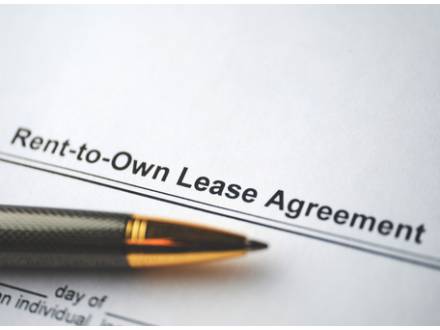Connecticut Rent-to-Own Agreements: Is There a Risk?
 With the high cost of housing, a rent-to-own agreement may sound like the perfect bridge to homeownership for many Connecticut families. With a rent-to-own agreement, you live in the property while working toward eventually buying the home. Unfortunately, many rent-to-own agreements have hidden issues that can leave you with no home, no money, and potentially expose you to legal problems as well.
With the high cost of housing, a rent-to-own agreement may sound like the perfect bridge to homeownership for many Connecticut families. With a rent-to-own agreement, you live in the property while working toward eventually buying the home. Unfortunately, many rent-to-own agreements have hidden issues that can leave you with no home, no money, and potentially expose you to legal problems as well.
Real estate lawyers can comprehensively check out your agreement and help you determine whether there is room for improvement. Even if the seller refuses to make changes to the agreement, before signing, you must always seek legal advice to ensure your rights are protected and that you fully understand the risks. An experienced Stamford, CT real estate lawyer can help you determine whether a rent-to-own agreement is right for you and whether there may be a better alternative.
What is a Rent-to-Own Agreement, and How Do These Agreements Work in Connecticut?
A rent-to-own agreement is a hybrid between a home purchase contract and a lease agreement. The tenant rents a property with the right or obligation to buy it at a future predetermined date and price. Rent-to-own agreements, unlike standard leases, are governed by state-specific laws in Connecticut. These agreements typically involve an upfront, non-refundable option fee and higher rent, with a portion of the rent allocated towards the home’s purchase price.
Rent-to-own agreements also typically have specific maintenance responsibilities for the tenant, with the tenant being responsible for virtually all repairs, rather than the landlord. If the property is in excellent shape, this might not be an issue, but if it is not, the renter could spend significant amounts of money on repairs and maintenance. The rental period typically ranges from one to three years.
The purchase price is usually locked in, which can be beneficial or detrimental to the buyer, depending on whether real estate prices fluctuate in a positive or negative direction. At the end of the lease period, the tenant is contractually obligated to purchase the property. Renters typically choose a rent-to-own agreement due to a lack of a down payment, uncertain financing, or poor credit.
What Are the Legal Risks for Tenants in a Rent-to-Own Situation?
Tenants considering a rent-to-own agreement should be fully aware of all the potential risks involved, including:
- The option fee is generally non-refundable, so a buyer who changes his or her mind or is unable to secure financing loses that fee.
- The tenant typically pays higher monthly rent, which may or may not be credited toward the purchase price.
- Since the purchase price is locked in, should the housing market decline, the buyer will be overpaying for the property.
- There are far fewer protections for the buyer in rent-to-own agreements than in standard leases or purchase contracts.
- A buyer could potentially discover serious issues with the home that will cost thousands of dollars to repair. However, under the Connecticut Uniform Property Condition Disclosure Act (Connecticut General Statutes Section 20-327b), a seller is required to disclose known material facts to the buyer.
- There may be potential disputes regarding appraisals and financing at the end of the lease.
- Missing a payment could result in forfeiting the right to purchase the property.
How to Protect Yourself in a Rent-to-Own Deal
Connecticut statutes require rent-to-own contracts to be clear and in writing. Terms that unfairly disadvantage a tenant could be scrutinized by the courts. Tenants should always have a rent-to-own agreement reviewed by an attorney to ensure that repair responsibilities are clearly stated. The agreement should meet all legal requirements of the state and should verify option fees and rent credits. Tenants considering a rent-to-own should check into a traditional mortgage with credit repair assistance, owner-financed mortgages, or a lease with the option to purchase, but without a binding obligation.
Contact a Fairfield County, CT Real Estate Lawyer
Rent-to-own agreements can open the door to homeownership, but when not properly managed, can also slam that door shut. A Stamford, CT lease agreement attorney from Law Offices of Daniel P. Weiner can help you choose the right path to home ownership with minimal risks. Call 203-348-5846 to schedule your free consultation.







